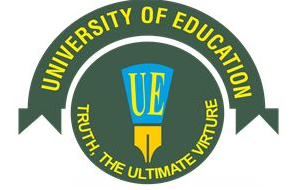Today’s workers shouldn’t expect to stick with one career for life; instead, they must continuously develop their skills to adapt to the ever-changing job market. While early stages of post-academic employment center on assimilating into entry-level roles through proven competence and loyalty building trust, long-term success depends on continually expanding capabilities aligned to higher tier positions well before actively pursuing them.
Master In-Role Expertise Through Commitment
Just starting out, impatient novices often survey landscapes broadly seeking the next fancy titles and skills to bolster resumes rather than developing actual expertise. However, respected veterans know establishing in-depth competencies within assigned responsibilities earns trust and referrals, unlocking accelerated growth in due time. Rather than rushing between roles collecting shallow experiences misaligned with long-term specialties, professionals committed through investing years toward fully mastering formal job descriptions and nuanced workplace systems signal dedication converting to influence ultimately. They become wellsprings of specialized insight colleagues rely on while leaders groom them for increased authority.
Reskill Regularly Through Online Channels
After achieving expert status and proving their abilities in their field, ambitious professionals often expand their skills into related areas. According to the experts at ProTrain, online certification courses enable convenient reskilling because condensed continuing education modules expose workers to new frameworks, best practices and tools applicable across industries without detracting from full-time positions.
Pursue Targeted Credentials Supporting Long-Term Goals
Besides refreshing perspectives and winning practical know how through always-on learning programs like online courses, professionals with specialized leadership ambitions in mind pursue formal qualifications explicitly required for occupying those roles one day. Whether advancing towards healthcare administration, engineering management, educational leadership, chief technology offices or other coveted positions, targeted graduate degrees, industry certifications and mandated accreditation credentials accelerate career elevation processes once adequately validated through lower tier mastery. Understanding precise qualifications criteria expected of goal occupations informs required developmental milestones long before actively applying.
Reflect on Growth Through Self-Directed Learning
Although formal education and company training significantly improve workplace skills, lifelong learners understand that continuous self-improvement through independent study, practice, and mentorship is crucial. They consume books, blogs, podcasts and more analyzing real world case studies related to specialized domains. They relentlessly test emerging theories and methods through hands on experimentation perfecting techniques over time through purposeful repetition. Self-directed career professionals never stop absorbing information, challenging assumptions and optimizing approaches ultimately culminating in renown specialty thought leadership.
Choose Roles Enabling Ongoing Enrichment
Supportive environments empowering employees to regularly expand their capabilities and even pursue formal education in parallel with workload carry tremendous value for keeping skills marketable. Stimulating roles staying ahead of industry changes also keep professionals sharp. Evaluate job descriptions and speak with teams assessing learning infrastructure and expectations enabling continual professional development.
Getting More from Professional Development Initiatives
Checklist for deriving maximal career capital from learning investments:
- Define why capabilities matter, how they align with goals and what processes might change.
- Benchmark starting competencies honestly assessing current strengths and gaps.
- Develop metrics gauging progress through milestones tied to genuine capability gains.
- Over-apply lessons immediately cementing teachings through deliberate practice.
- Inventory and organize findings into streamlined reference sources aiding memory.
- Mentor others through informal learning partnerships spreading impact.
- Codify newly gained knowledge into standard operating procedures and daily habits.
Conclusion
To maintain a consistently successful career trajectory, it is essential to continuously update and improve one’s skills to ensure they align with the ever-changing demands of the job market and the individual’s personal aspirations for career progression. By choosing supportive environments empowering never-ending enrichment professionally and personally, dynamic careers maintain progressive trajectory through ongoing mastery fueled by self-motivation and lifelong learning habits.

